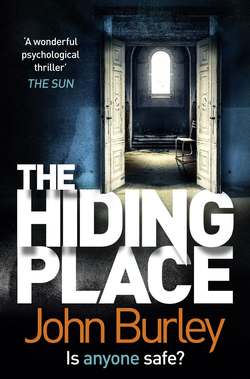Читать книгу THE HIDING PLACE - John Burley - Страница 13
Chapter 6
ОглавлениеI lay awake that night thinking about Jason. Matt’s words—He believes in you … You’re all he has left—had struck a chord with me, and I kept mulling them over in my mind. It was an odd thing for him to say. His role at the hospital would not grant him access to the background information of our patients. And yet, human relationships trump legal and professional boundaries all the time. If he was dating a nurse who’d been there during Jason’s intake, or even knew someone who worked at Jason’s prior institution, there was a possibility that Matt knew more than I did about my own patient. That bothered me, but his words weighed on me for another reason as well. It’s the nature of psychiatry—the role we’ve chosen to play. So often we are the only tangible thing anchoring our patients to their delicate perch above the abyss. It keeps me awake at night, contemplating that relationship, and when I close my eyes in the dark, edging carefully toward the elusive precipice of sleep, I can sometimes feel them slipping from my grasp—all of them. I startle awake, reaching out for a better hold, but find myself alone in the room with nothing but black and empty space above me.
I hadn’t commented on it today during our session, but it turns out that Jason and I grew up in the same community—Columbia, Maryland—although I can’t recall having ever run into him in those earlier years. It didn’t surprise me. I’ve made a concerted effort to distance myself from that time in my life, as if there’s still a danger of sliding backward into that lanky prepubescent body and the years of emotional abandonment that have prevented me, even now, from mustering the courage and vulnerability to maintain an intimate personal relationship.
I was a child of distractible parents who occupied their thoughts with practical matters: their jobs and daily errands, relationships with friends and acquaintances, the maintenance of a house that was more a physical structure than a place of refuge, the anxiety of never having enough money to feel truly secure. I remember watching them as we sat around our kitchen table at dinner, my father’s eyes often distant with worry, my mother’s hands straightening her silverware over and over again, as if it might have moved when she wasn’t looking. My brother and I used to horse around, make faces at each other over the evening meal, converse in our Donald Duck voices until one of us inevitably knocked something over or snorted milk out our nose. We did it because we were children and that’s what children do, but there was also a certain desperation in that interplay, our eyes darting in the direction of our parents’ faces as we tried to get them to laugh or smile and shake their heads, their attention returning to the family in front of them. I remember that I had the foolish idea that we could somehow change them—awaken them—and one of my life’s greatest disappointments was discovering that we could not.
The worst kind of loneliness, I think, is to be in the presence of those you love and have them treat you like you aren’t there. To this day, when I picture the face of my mother, it is always in profile, her eyes studying something in the room that is not me. There was so much worry, so much preoccupation in that expression, and because she never talked about the things that troubled her, I was left to imagine the worst. “What’s wrong, Momma?” I would ask, but she wouldn’t answer, or would respond with, “Hmmm?”—like I’d just disturbed her from a light snooze. Sometimes, if she was sitting still, I would slide up beside her and put my head on her lap. On good days, her fingers would absently stroke the hair on the side of my head, looping a blond lock around the soft curve of my ear, and during those moments I would feel that we were somehow closer. But just as often her hand would lie motionless in her lap, as if the weight of my head on her thigh was causing her some unseen discomfort that she was too stoic to mention, and after a while I would move away, ashamed of my own neediness, and leave her to her thoughts, the retreating tread of my footsteps nearly silent on the thick carpeting of our lifeless house. I would don my sneakers and ease out the front door, closing it gently behind me as if somewhere in the house lay a sleeping infant who must not be roused. I would go down to the creek, picking my way through the twist of underbrush, the sticker bushes slashing at the tan flesh of my calves and ankles, leaving bloody scratches that I wouldn’t notice until my evening bath. And when I’d come to my private spot in the woods, I would throw jagged little stones at the trees until my arm ached with the repetitive effort and the hollow place inside of me hurt just a little less.
